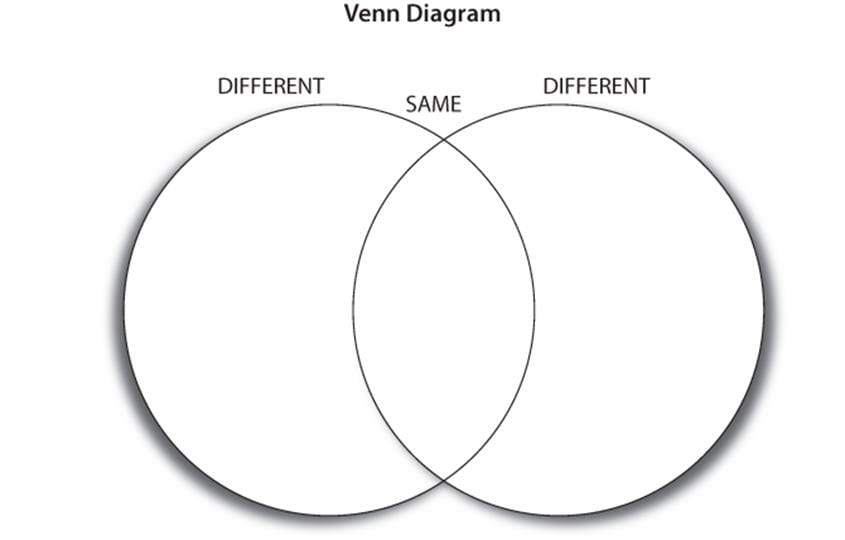
Relationships are very sensitive. Bringing two people together creates lots of fun and joy, but at the same time, it creates conflict and pain. According to Choice Theory, we can develop habits that create more fun and joy and less conflict and pain.
Dr. William Glasser is an American psychiatrist I highly appreciate. He developed Reality Theory, which later became known as Choice Theory.
In the seventies, Glasser’s work was not widely accepted by his colleagues. While others thought that human behavior was affected by external sources, Glasser believed in personal choice, personal responsibility and personal transformation.
Other psychiatrists categorized certain behaviors as mental disorders and prescribed medication accordingly. Glasser believed he could teach his patients to make better choices to achieve better results.
He applied his theories to education, management and marriage. The examples I give in this post are relevant to marriage.
Choice Theory states that a person’s behavior is inspired by what the person wants or needs at that particular time, not by an outside stimulus. Glasser believed that all living creatures controlled their behavior to fulfill one or more of the following needs:
- Survival
- Belonging and being loved by others
- Power and importance
- Freedom and independence
- Having fun

As you can see, these are not simply desires. Rather, they are needs that exist in everyone’s mind. A need is a strong desire we can’t live without. It is not a preference. It is not a want. Often, it is subconscious, so we are not even aware of it. It is so strong that it functions as a prerequisite for our emotional wellbeing.
We like to believe that our relationships are based on love, shared values, common goals, joint history and other conscious ideals. So why do we behave in ways that ruin things and hurt each other?
It’s because our needs are so strong they override all that ever was between us and our partner. Of course, this is also true for our partner. Every action, or reaction, is meant to fulfill a need and might override the love and care we have for each other.
This is important: everyone’s needs are stronger than their values.
According to Glasser, we all have the power to change our life based on the choices we make. You can change your life based on the choices you make as a partner, a lover and a friend. We all have the power to change, regardless of age, experience and hormonal function (or dysfunction), if only we know how.
Choice Theory
Glasser explained his theory as follows:
- All we do is behave.
- All behavior is total behavior and is made up of four components: acting, thinking, feeling and physiology.
- The only person whose behavior we can control is our own – Yes, I know it is hard to accept this, but if you do, your life will be so much easier and so will your marriage.
- All we can give our partner is information – We can’t make them think, feel, do or physically react in a certain way. We can only offer, suggest, model or try to force and manipulate, but they always have the choice whether to do it or not.
- All total behavior is chosen, but we only have direct control over our acting and thinking.
- We can only control our feeling and physiology indirectly by how we choose to act and think.
- All long-lasting psychological problems are relationship problems.
- Relationship problems are always part of our present life.
- What happened in the past has everything to do with what we are today, but we can only satisfy our basic needs right now and plan to continue satisfying them in the future – In other words, we brought ourselves to the position we are in today, but we can’t change the past and must leave it where it needs to be, i.e. in the past, and focus on the present and the future. The more we think of the past, the more frustrated we will be and the more we will reinforce bad habits that will make our marriage difficult.
Based on Choice Theory, every big difficulty in life is caused by a relationship breakdown. There are 7 things we do that cause relationship breakdown and 7 things we can do to heal the relationship.
Seven Deadly Habits

Check yourself. If you use any of the deadly habits below with your partner, you are sabotaging your relationship. Remember, happiness is a choice and so is a happy marriage. You can always choose differently.
Criticizing
For example, telling your partner that what they did was wrong, finding fault in their behavior, actions, choices, relationships, sharing your negative opinion about them or others who are important to them.
Criticizing destroys self-esteem and damages confidence. No one likes to be in a relationship in which they are criticized. This will affect your relationship and will make you drift apart.
Blaming
Blaming is feeling discomfort and telling your partner the discomfort was caused by him or her. This contradicts the basic Choice Theory idea of having to take responsibility over our thoughts and feelings. For example, blaming your partner for causing you to work too much, for not giving you what you need, for not loving you or for not pursuing your dream.
Blaming creates a feeling of guilt, which is a very debilitating emotion in every marriage. No one likes to feel guilty for someone else’s pain and blame will damage the good you have in your relationship.
Complaining
Complaining is an act of expressing discomfort and unhappiness. It’s a step up from criticizing. Complaining is self-centered and many people do not consider complaining a serious problem. However, when it is done repeatedly, and mainly by one partner, it becomes a form of emotional abuse.
If someone ever labels you as a “complainer”, see it as a warning sign, reevaluate your behavior and attitude and consider getting professional help.

Nagging
Nagging is trying to make your partner do something that you want them to do, when they don’t want to do it. It’s is a sign of disrespect for their choice. When you nag, you are putting pressure on your partner.
If your partner does what you wanted them to do after you nag, they are doing it out of fear. This means they also developed some resentment, which can turn into hatred and disrespect from even a small conflict.
Every time you nag, you sacrifice a bit of your relationship to have things your way once, because love cannot live in the same place with resentment and disrespect.
Threatening
Threatening is telling your partner of a negative outcome that you will create for their action. The negative outcome can be a form of punishment, like “I will take the kids away from you”, or emotional, like “I will be disappointed/angry with you”.
Threats use fear as a way to control. They contradict the basic need for survival and rob your partner of other needs, like independence, power, love and belonging. This immediately sends them into “fight or flight” mode, where all communication is pure pain for both sides.
Threatening is a form of abuse. Think about the purpose of terrorism, which is to cause fear. When you cause fear, you are your partner’s terrorist, when you should be his or her greatest fan. If you think your partner is afraid of you, you are doing something wrong. Fear will always kill a relationship. The only option your partner has is to keep away from you.
Punishing
For example, preventing our partner from receiving food, money, compliments, sleep, friends or sex, physically hurting them, isolating them or hurting the kids to manipulate them.
Punishing is practicing your power in a negative way. This is why it is called abuse – you are using our power for your own gain at the expense of your partner, instead of using it to benefit your relationship.
Bribing or rewarding to control
This is a form of manipulation and it goes against the way your partner would behave naturally. It’s a wolf (threat) in sheep’s skin. When using this behavior in a relationship, you divert your partners motivation from their own to yours. Over time, this creates fear, weakens them and creates resentment towards you.
Saying “I will do this if you do this” puts conditions on the love and support in the relationship, so it’s a form of abuse. Just like all the other deadly habits, this is a form of pressure, and if you put too much pressure on your relationship, it will break!
Seven Caring Habits

Just as the 7 deadly habits cause marriage problems, the 7 caring habits provide solutions and strengthen the relationship.
Supporting
The opposite of criticizing. You are supportive when you help your partner achieve what he or she wants to achieve. For example, your partner wants to go to the gym or meet a friend. He or she needs to feel that you will not criticize this choice and come up with an arrangement to allow your partner to do it. You are supportive when you know what your partner wants and accept it without judgement.
Encouraging
The opposite of blaming. You are encouraging when you actively do something to push your partner gently toward what they want to achieve. Instead of telling your partner off for not pursuing a dream, offer to help make it happen. Asking “Is there anything I can do to help you?” is a sign that you are willing to support your partner in achieving something he or she wants.
Listening
The opposite of complaining. You are kind and a good listener when you give your time and attention to your partner. For example, instead of complaining that your partner does not do what you expect them to do, it is best to ask what might be blocking them from doing it and then listen.
A simple way to test good listening in a conversation is to check who speaks the most. It is very simple: the person who speaks less cares more. A person who asks genuine, interested, curious questions, and then pays attention to the answer for as long as it takes, is a good listener.
That person also shows he or she cares and contributes to the relationship.
Accepting
The opposite of nagging. You are kind and accepting when you respect your partner’s choices and you don’t nag to change them. For example, instead of telling your partner what he or she should do, just accept that it’s the best they can make at the time and that they may have different standards for evaluating the situation.
Try again in a month or two, after using the caring habits to find out what your partner wants and what you can do to help him or her, to listen and to encourage.

Trusting
The opposite of threatening. You are trusting when you believe that your partner cares about you as much as you care about them. Opening up to your partner lets them open up to you.
When you trust your partner, you don’t think you are in a higher position and you never use your partner’s love and care for you to gain power. Tell your partner that you trust him or her to do the right thing and make don’t condition how you will behave as a result. Conditions are the opposite of trust.
Respecting
The opposite of punishing. Respect is the act of giving space to your partners to be themselves, without judgment and without making them feel fearful. For example, instead of punishing your partner for not doing what you expected of them, respect their right to make their own decisions. After all, they need to live with themselves for the rest of their lives.
Respect your partner’s privacy, their taste in fashion and music, and their choice of hobbies and friends. If you share the same taste, cool! If not, accept that you and your partner are different, and this is what attracted you to them in the first place. You are not looking for a partner that will always feel or act like you.
Negotiating differences
The opposite of bribing or rewarding for control. You are a good negotiator when you do not fall into the deadly habits during conflict, but discuss your differences in a calm and rational way. For example, you agree to disagree without hard feelings, or you can listen to your partner’s point of view without trying to make your own point of view superior.
The best way to view negotiations is as a Venn diagram:

The part in the middle is what makes relationship happen. If this part shrinks, the relationship will eventually break. If the part in the middle grows, your love and connection will last. It’s all about choosing where to focus.
When using the deadly habits, you are making the common ground smaller. Your love for your children and your fear of letting go will not be enough to keep the relationship going.
If you use the caring habits, you make that part bigger and keep the love and connection between you alive.
Happy marriage!
Ronit
This post is part of the series Save Your Marriage:
- Self-Regulation in Your Marriage
- How to Save Yourself from Divorce
- Marriage and Divorce Statistics
- The Marriage Institution
- Marriage is the Foundation of Families
- The Unpleasant Side of Divorce
- How to Get Things Wrong in a Marriage
- Marriage and Self Talk
- More About Self Talk
- Facts vs. Meaning in Marriage
- All Men Are… All Women Are…
- When Two Do Not Become One
- Marriage and Money
- Be Your Partner’s Best Friend
- Relationship Between Two Onions
- The Greatest Gift: Stay Together
- Marriage of Singles
- The "Right" Trap
- The Intention Trap
- Best Marriage Quotes that Will Change Your Life
- 10 Rules for Civilized Dialogue
- 10 Tips for Re-Building Trust
- The King and His Servants
- The Nitpicker
- Expressing Feelings in a Marriage
- Don’t Be On Guard
- Don’t Clam Up
- Have Good Sex to Save Your Marriage
- Trust (or The Boy Who Cried Wolf)
- Emergency Relationship Coaching Essentials
- Save Your Marriage with Better Time Management
- Choice Theory Can Save Your Marriage
- How to Have a Hot Relationship
- A Respectful Relationship Will Save Your Marriage











